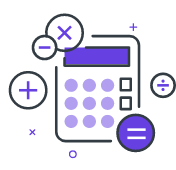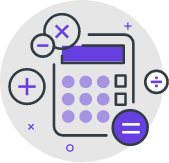What is a self-employed mortgage?
A “self-employed mortgage” is not a specific type of mortgage, but rather refers to the type of people applying. In theory, anyone with a good credit record should have equal access to mortgage rates. The difference lies in how lenders assess income and ability to afford the mortgage.
Being self-employed means working for yourself and not being a salaried employee. Lenders assess how a self-employed person can pay for a mortgage, and the structure of your business can affect their decision.
Lenders will check payslips and salaries for regular employees. For the self-employed, they consider net profits, projected profits, dividends, contracts and business conduct.
Traditional lenders may not be sympathetic to self-employed borrowers with irregular income. However, our experts can help find the right mortgage for you if you can demonstrate your income through your accounts.
Self-employed mortgage lenders
Lenders have become stricter in approving mortgages. This difficulty in approval has arisen for individuals with irregular income, like the self-employed. Most lenders base their calculations on historical data rather than current income.
However, don’t let this deter you. There are still a range of lenders who are more willing to consider self-employed individuals.
Each lender will have different self-employed mortgage criteria and different ways of calculating income for applicants. However, after determining income, lenders will base borrowing decisions on the same criteria as other mortgage applicants.
Ordinarily, a self-employed individual will have access to the same mortgage rates as any other application. However, if a lender perceives you as risky, which could be likely due to your income, you may incur a higher rate.
How to get the best mortgage interest rate as a self-employed individual
There are several steps you can take to increase your likelihood of obtaining a mortgage with a favourable interest rate.
- Firstly, provide evidence of a robust business plan.
- Save a larger amount of money for your deposit. This limits the risk a lender is exposed to, as you won’t have to borrow as much.
- Maintain a solid credit history. Again, this makes you a less risky borrower as it shows you can manage your finances.
- Finally, use a mortgage broker. A broker’s experience will allow you to present your application in the best light, to the most suitable lender.
Taking these steps will help you on your way to obtaining a competitive mortgage rate.
Tailored Mortgage Solutions for the Self-Employed

Buy-to-Let Mortgages

Interest-Only Mortgages

Remortgage Options

Commercial Mortgages
How to prove my income for a self-employed mortgage
Lenders self-employed mortgage requirements always require proof of income for applications. Some lenders verify income with HMRC to save time, but it doesn’t eliminate the need to prove your income.
You may be asked to show the following if you are self-employed:
- Your accounts certified by an accountant
- Your SA302 form or a tax year overview from HMRC
- You sometimes may need to show an in-depth business plan
- If you’re a contractor you may be required to show evidence of any future contracts
An SA302 form is a document provided by HMRC that shows your income and tax calculations for a specific tax year. Over 50 lenders accept SA302s printed at home or by an accountant, along with the corresponding tax year overview. However, some lenders may require original SA302s directly from HMRC.
The form summarises your income from various sources and breaks down the tax due. You can obtain the form online or through commercial software if you file your taxes online. If you need an original form, you must request it from HMRC.
How long do you have to be self-employed to get a mortgage?
The majority of lenders will require a minimum of two or three years accounts when applying for a mortgage. However, what if you don’t have this many?
Lenders have different approaches to considering self-employed income in mortgage affordability calculations. It is possible to obtain a mortgage with just last year’s account, although it will not be straightforward.
You may be seen as more of a risk due to your limited financial history, therefore you may receive a higher interest rate. Speaking to a broker can ensure your application is shed in the best possible light to increase your chances of obtaining a competitive product.
Lenders will consider an application if you have 2 years of trading accounts and the associated tax calculations. Typically, they will use an average of the 2 years’ net profit for mortgage calculation purposes.
Where there is a greater deposit or equity value, lenders are likely to be more accepting.
Our specialist advisors will be able to review your circumstances and requirements to recommend the best way forward.
How the different types of self-employment affect you
Mortgages for sole traders are available on the same basis as traditional mortgages where the applicant(s) are employed. On a sole trader mortgage, a lender will assess the overall profile of the business finances and the borrowing capacity will be based on the business’s net profit.
Lenders do not differentiate between offering a standard mortgage for an employed person and a mortgage for partnerships. The vast majority of lenders will offer this type of mortgage.
Like with any self-employed mortgage, the main difference is how a mortgage application is assessed. The amount you can borrow if you’re in a partnership is assessed on the share amount allocated to each individual partner.
Before applying for a mortgage as a company director, lenders will expect you to have been trading for a year. This is because they will want to see at least one full tax year worth of accounts. Certain lenders may even require two or three years.
Although, in some cases, exceptions can be made for certain professionals, like doctors. Where your company’s accounting year does not run April to April, lenders may be willing to look at a 12-month “snapshot” of your accounts instead.
When assessing a mortgage application by a company director, most lenders will look at the salary drawn from the company, plus dividends drawn. However, there are some specialist lenders who will consider your share of the company’s net profits as your income. This can make a considerable difference in the amount you can borrow.
Self-employed mortgage brokers
At IMC Mortgage Brokers we specialise in giving self-employed mortgage advice to those with complex incomes.
We offer an impartial service and have access to a wide range of lenders. We also consider different trading strategies and can work with clients who only have one year’s trading accounts.
Please feel free to get in touch with our team for a free initial, no-obligation consultation. We’ll be happy to see how we can help, let us do the hard work for you and find the mortgage to meet your needs.
Protect Your Home & Income

Life Insurance

Income Protection

Critical Illness Cover

